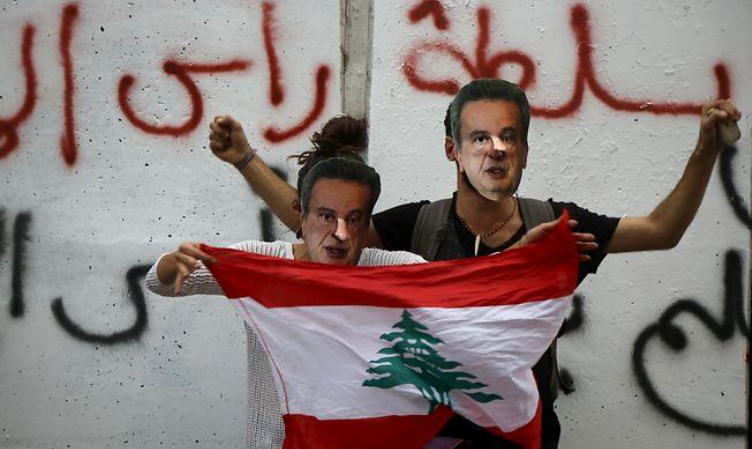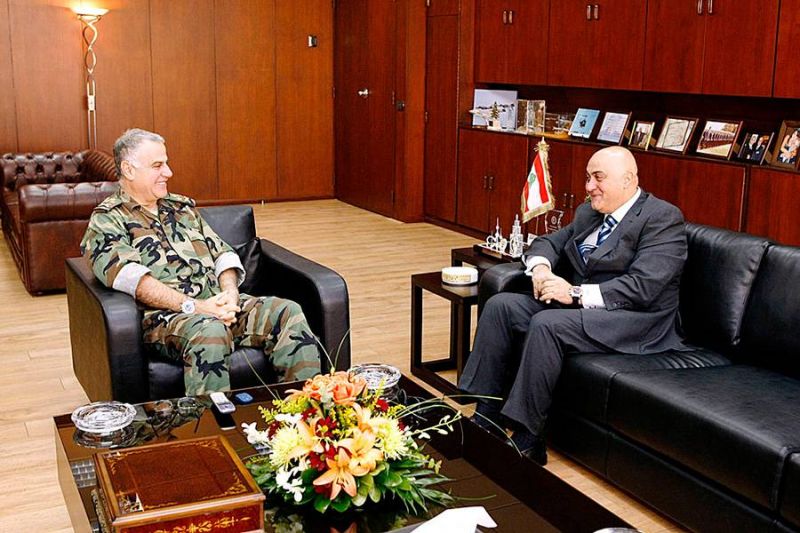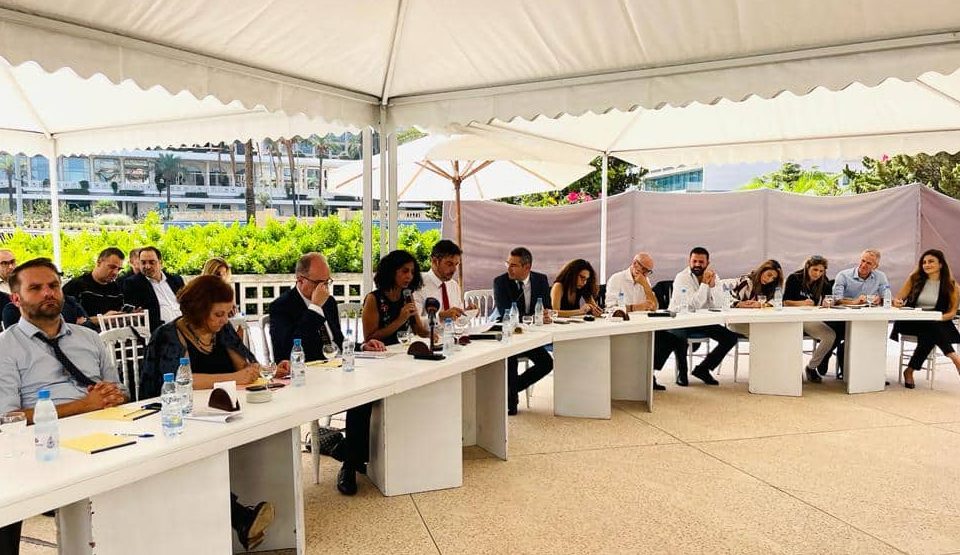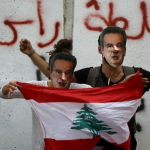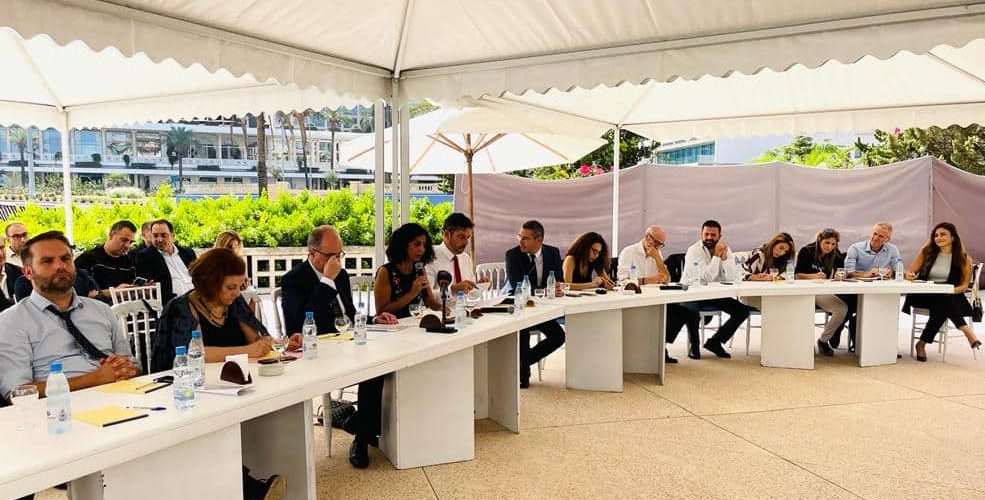
Luxembourg agents start corruption probe in Beirut
1 March 2023Nada Maucourant Atallah - The National News
Lebanese judge Raja Hamoush charged Central Bank Governor Riad Salameh, his brother Raja, and his assistant Marianne Howayek with embezzlement, forgery, illicit enrichment, money laundering, and violation of tax law on Thursday. The move is based on an 18-month investigation led by Judge Jean Tannous into alleged embezzlement at the Banque du Liban (BDL) of more than $330 million through a contract awarded to his brother, Raja Salameh.
Riad Salameh was once lauded as the guardian of the financial sector — which has now completely collapsed amid an unprecedented financial crisis.
He has been the target of investigations since 2020 in at least six European countries over alleged financial wrongdoing and corruption. Both brothers have denied all accusations against them.
“As I declared previously, I am innocent of these charges,” Riad Salameh told Reuters on Thursday. He said the latest development was “not an indictment”.
A spokesperson for BDL did not respond to a request for comment.
Riad Salameh is being investigated by so many parties now, it can seem hard to keep up. Here's what you need to know.
Why is Riad Salameh being investigated?
The Lebanese and foreign investigations are looking into Forry, the company run by Riad's brother. It was supposed to act as an intermediary between the BDL and commercial banks in purchasing and selling financial instruments.
Under the contract terms signed in 2002, Forry would earn a broker’s fee of up to 0.38 per cent of the value of transactions between BDL and the lenders.
But investigators allege that Forry was a vehicle designed to siphon millions from the Central Bank by collecting commissions without providing any actual services in exchange.
Judicial documents reveal how the money was then transferred from an account at BDL through layering operations involving various countries and people, including his assistant and former romantic partner, Marianne Howayek, whose company allegedly received 1 million Swiss francs.
Stakes are high as EU investigators plan Beirut trip over Salameh case Thursday's charges are not the first laid against the Governor, who remains in post despite the scandal beginning to engulf him.
Last March, Judge Ghada Aoun charged Riad and Raja Salameh with illicit enrichment in another case related to the purchase and rental of apartments in Paris.
Raja Salameh was detained for nearly two months before he was released on bail of about 100 billion Lebanese pounds ($3.7 million).
The case remains at the indictment division of the court of appeal after the defence appealed the decision.
European investigations have yet to bring charges against Mr Salameh.
Do the new charges present a risk to the European investigations?
Some lawyers warned that the current prosecution effort in Lebanon could jeopardise those under way in Europe, hinting at an attempt to sabotage the case.
This is based on the legal basis that someone cannot be prosecuted twice for the same crime.
“There is a risk: Lebanon's judiciary could ask the foreign investigations to stop, based on the Civil Procedure Code and the United Nations Convention against Corruption on the ground that Lebanon launched the prosecution before the other European jurisdictions,” said a lawyer who preferred to remain anonymous.
“We need more information on the charges and facts brought up in the case by the Lebanese judge, there might not necessarily be an overlap,” he said.
This would not be the first time a country has used a similar strategy in a bid to jeopardise a foreign investigation into an individual's assets.
“But if the domestic proceedings appear to be inspired solely by the need to ensure the impunity of the suspect, the foreign judge can decide that the decision does not apply to his case,” the lawyer added.
In the Teodorin Obiang case, for instance, the son of Equatorial Guinea's president was found guilty of embezzlement in France despite his acquittal in Equatorial Guinea for the same charges.
What are the next steps?
Judge Hamoush referred the file to the Beirut First Investigative Judge Charbel Bou Samra, according to Lebanon's National News agency, demanding the “interrogation of the defendants,” and “the issuance of the necessary judicial warrants”.
But some fear the case might be stuck there for a while.
“It has happened before with high-profile cases which end up in the hands of Judge Bou Samra,” said lawyer Wadih Akl, a member of the political bureau of the Free Patriotic Movement political party.
In 2020, a high-profile corruption case involving eight high-ranking security officers, including Lebanon's ex-army chief, was referred to the judge.
“Three years after, there is still no development in sight,” said the lawyer, who is among those to have sparked the investigation.
“But the situation is different now, the European judiciary has access to all the evidence. The international pressure, and the threat of sanctions, cannot be ignored any more,” he added.
The European judiciary has kept a close focus on the Riad Salameh case, and the delegation of prosecutors is set to come back to Lebanon in a few days for a second round of questioning.
Another question is whether these judicial developments could erode the support of the political class for the Central Bank Governor.
So far, this has not been the case, Riad Salameh has retained the backing of most of the ruling elite.
While Riad Salameh previously said that he was ready to step down from his 30-year stint when his fifth term ends in July, Caretaker Finance Minister Youssef Khalil told Reuters last week, that given Lebanon's “political environment” replacing him would be “very difficult”.


